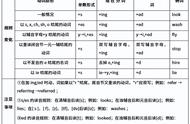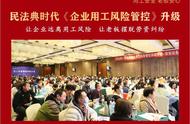76. Run late – when you will not be somewhere at the planned time.
晚点——你不会在计划的时间出现在某个地方。
He is running a little late this morning because of traffic.
由于交通堵塞,他今天早上有迟到。
77. Run out of – to not have any more of an item.
用完-不再拥有任何物品。
We are about to run out of printing ink, could you order more, please?
我们的墨水快用完了,请再点一点好吗?
78. Sell off – to sell a part of or a whole business.
出售-出售部分或全部业务。
Nokia plans to sell off its mobile phone department to Samsung.
诺基亚计划将其手机部门出售给三星。
79. Sell out – to have sold all items of something with nothing left.
卖完——把某物的所有东西都卖光了。
We always sell out of that perfume brand during this time of year.
在每年的这个时候,我们总是卖掉那个香水品牌。
80. Set up – to arrange/create. Or, to start a new business or a new department of a business.
设置-安排/创建。或者,开办一家新公司或一个新部门。
Virgin Airways plans to set up offices in Berlin next year.
维珍航空计划明年在柏林设立办事处。

81. Shop around – to compare prices and products at different places before buying.
货比三家——在购买前比较不同地方的价格和产品。
Most large companies constantly shop around for the cheapest materials.
大多数大公司经常到处采购最便宜的材料。
82. Sign off on – to formally approve of something
签字-正式批准某事。
You’re going to need the boss to sign off on this order.
你需要老板在这张订单上签字。
83. Sign up – to agree to receive or to do something.
注册-同意接收或做某事。
Many website companies want their site’s visitors to sign up for a newsletter.
许多网站公司希望他们网站的访问者注册一份时事通讯。
84. Sort out – to fix or solve a problem.
解决-解决或解决一个问题。
The company had to recall all the phones to sort out the battery problem.
公司不得不召回所有的电话来解决电池问题。
85. Spell out – to explain in plain and simple terms.
用简单明了的语言解释。
Tech companies need to really spell out their product’s advantages to customers.
科技公司需要真正向客户阐明他们产品的优势。

86. Step Down – to give up their position or title.
下台-放弃他们的职位或头衔。
The CEO of Malaysia Airways stepped down on Tuesday after the news report.
马来西亚航空首席执行官周二在新闻报道后辞职。
87. Step up – to try/work harder
更上一层楼-努力工作。
Our company needs to step it up if we want to compete with Tesla.
如果我们想和特斯拉竞争,我们公司需要加大力度。
88. Stock up – to collect or buy a lot of something.
备货——收集或购买很多东西。
Most restaurants stock up on champagne before New Year’s Eve.
大多数餐馆在除夕夜前都备有香槟。
89. Take off #1 – to become highly successful or popular quickly.
迅速走红1-迅速成为非常成功或受欢迎的人。
The Harry Potter books took off even faster than the publisher expected.
哈利波特的书比出版商预期的要快得多。
90. Take off #2 – to not go to work.
请假2-不去上班。
Boss, can I take Tuesday off to visit my friend in the hospital?
老板,星期二我可以请假去医院看我的朋友吗?

91. Take on – to accept or agree to deal with.
接受或同意处理。
The boss thinks that you’ve taken on too much work and wants me to help you.
老板认为你承担了太多的工作,要我帮你。
92. Take over – to gain control. Or, to do something someone else was responsible for.
接管-获得控制权。或者,做别人应该负责的事。
The Financial controller has taken over the accountants duties.
财务总监接管了会计师的职责。
93. Talk over – to discuss a topic for decision.
讨论-讨论一个要做决定的话题。
Let’s talk it over tomorrow during the Sales meeting.
我们明天在销售会议上再谈吧。
94. Team up – to work together with another on something.
团队合作-在某件事情上与另一个人一起工作。
Malcolm and John, you two team up to solve this issue.
马尔科姆和约翰,你们两个一起解决这个问题。
95. Trade in – to give something old as part of the price paid for new things.
以旧换新——以旧换新。
All customers get $100 off the new S8 when trading in their old S7.
所有顾客在旧的s7上交易时都能从新的s8上得到100美元的折扣。















